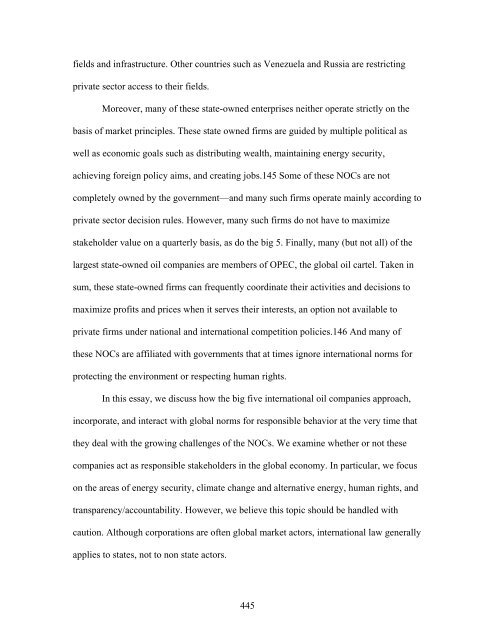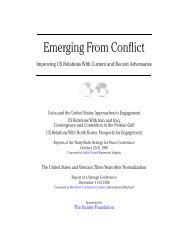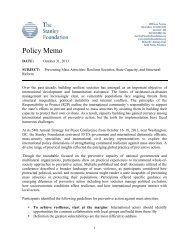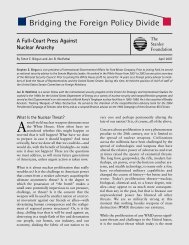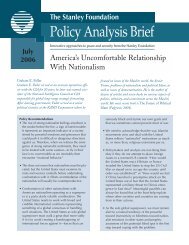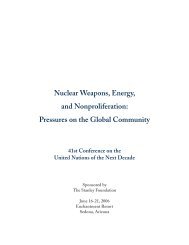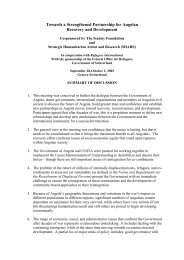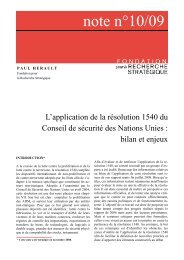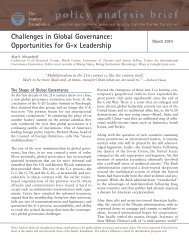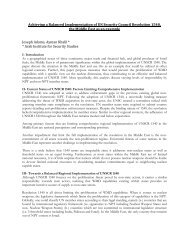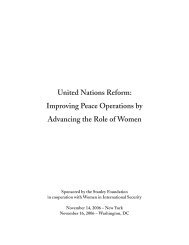444 By Susan Ariel Aaronson and David Deese With a reaction by ...
444 By Susan Ariel Aaronson and David Deese With a reaction by ...
444 By Susan Ariel Aaronson and David Deese With a reaction by ...
- No tags were found...
You also want an ePaper? Increase the reach of your titles
YUMPU automatically turns print PDFs into web optimized ePapers that Google loves.
fields <strong>and</strong> infrastructure. Other countries such as Venezuela <strong>and</strong> Russia are restrictingprivate sector access to their fields.Moreover, many of these state-owned enterprises neither operate strictly on thebasis of market principles. These state owned firms are guided <strong>by</strong> multiple political aswell as economic goals such as distributing wealth, maintaining energy security,achieving foreign policy aims, <strong>and</strong> creating jobs.145 Some of these NOCs are notcompletely owned <strong>by</strong> the government—<strong>and</strong> many such firms operate mainly according toprivate sector decision rules. However, many such firms do not have to maximizestakeholder value on a quarterly basis, as do the big 5. Finally, many (but not all) of thelargest state-owned oil companies are members of OPEC, the global oil cartel. Taken insum, these state-owned firms can frequently coordinate their activities <strong>and</strong> decisions tomaximize profits <strong>and</strong> prices when it serves their interests, an option not available toprivate firms under national <strong>and</strong> international competition policies.146 And many ofthese NOCs are affiliated with governments that at times ignore international norms forprotecting the environment or respecting human rights.In this essay, we discuss how the big five international oil companies approach,incorporate, <strong>and</strong> interact with global norms for responsible behavior at the very time thatthey deal with the growing challenges of the NOCs. We examine whether or not thesecompanies act as responsible stakeholders in the global economy. In particular, we focuson the areas of energy security, climate change <strong>and</strong> alternative energy, human rights, <strong>and</strong>transparency/accountability. However, we believe this topic should be h<strong>and</strong>led withcaution. Although corporations are often global market actors, international law generallyapplies to states, not to non state actors.445


